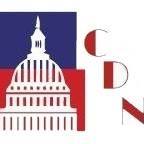


No government official needs to know what organizations you financially support. And no state attorney general should have access to Americans’ sensitive personal information without clearly showing cause or in the absence of criminal proceedings. Yet, wielding state power for his own political agenda, New Jersey Attorney General Matthew Platkin asked a court to force First Choice Women’s Resource Centers to disclose donor information about nearly 5,000 contributions (see AAF’s amicus brief in First Choice Women’s Resource Center v. Platkin).
Similar disclosures in the past have not fared well for Americans. In 2014, Mozilla forced their new chief executive Brendan Eich, the founder of JavaScript, to resign after discovering that Eich had donated $1,000 six years earlier to a campaign that supported Proposition 8, the voter-approved California constitutional amendment to ban same-sex marriage. In the late 1950s during the civil rights movement, Alabama attempted to use disclosure requirements to prevent the National Association for the Advancement of Colored People (NAACP) from conducting business, which included the Montgomery Bus Boycott and funding programs for African American students wishing to attend the state university (see NAACP v. Alabama).
Today, big government agencies already have large databases on Americans’ private information. Plenty of people have not told their best friend or neighbors how much they earn. Yet, the government—only trusted by 22% of Americans to do the right thing always or most of the time—knows.
Thanks to the SEC’s Consolidated Audit Trail (CAT), the federal government also compiles a list linking your every purchase and sale in the stock market to your sensitive, personal information. (see AAF’s amicus brief challenging CAT in Davidson v. Gensler). With the Supreme Court tailoring opt-outs for gender ideology in schools to religious exemptions, the government could seize the opportunity to create yet another list, this time of religious parents.
As explained in AAF’s amicus brief in Platkin, “No government official should be able to use his legitimate law enforcement power to pursue those with whom he disagrees politically.” The latter would reduce our constitutional protections to be the “mere parchment barriers” that our framers feared. Regardless of whether the court rules against Platkin, he will have taken time and resources away from First Choice’s mission of helping mothers and saving babies.
Without clearly showing cause, no government official should have the power to scour a private organization’s records. Even the threat of disclosure threatens freedom of speech and association, which are the cornerstones of the American tradition.
In America’s earliest days, Alexis de Tocqueville noted the “art of association then becomes… the mother science; everyone studies it and applies it” (quoted in AAF’s amicus brief First Choice Women’s Resource Centers v. Platkin). Where “all citizens are independent and weak” and “can hardly do anything by themselves,” Americans must coordinate to effect change. The latter is an intentional feature of our constitutional system that protects minority opinions from suppression and ensures power remains derived from the people.
Platkin is not a fluke or merely a result of one bad actor. In October, the Sixth Circuit will hear a similar freedom of association case, Buckeye Institute v. IRS, where the federal government defends its practice compelling non-profit organizations to disclose private donor information.
President Reagan said that the scariest words in the English language were “I’m from the government and I’m here to help.” When the government collects information, Americans are threatened by the abuse of that information. For that reason, the government should only be collecting information it absolutely needs. The courts in these cases must ensure that governments are not storing up information and, in so doing, exposing Americans to harassment by government agents.
Marc Wheat is the General Counsel of Advancing American Freedom Vice President Mike Pence, Founder. Follow us on X @AAFLegal.
Content created by The Daily Caller News Foundation is available without charge to any eligible news publisher that can provide a large audience. For licensing opportunities of our original content, please contact licensing@dailycallernewsfoundation.org
Agree/Disagree with the author(s)? Let them know in the comments below and be heard by 10’s of thousands of CDN readers each day!

